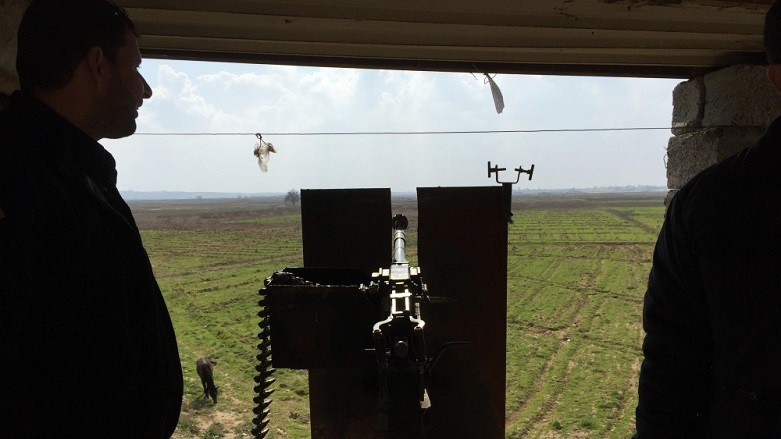Tribes in Iraq's disputed Kirkuk province request arms to fight ISIS

ERBIL (Kurdistan 24) – Several Sunni Arab tribes in Kirkuk province’s Hawija district, a key stronghold of the Islamic State in Iraq between 2014 and 2017, have asked the federal government to provide them arms with which to defend themselves against the extremist organization's increasing attacks.
The Islamic State has recently launched a series of attacks on Iraqi security forces in multiple provinces including Kirkuk, marking something of a resurgence of the group following its territorial defeat in 2017 by Iraqi security forces, Kurdish Peshmerga, and Popular Mobilization Force (PMF) militias, along with air support by the US-led Coalition.
In late April, two suicide bombers belonged to the group, attacked Kirkuk’s intelligence headquarters, injuring a number of security forces.
Read More: ISIS claims suicide attack targeting Kirkuk’s intelligence headquarters
A number of anti-Islamic State operations have been launched in recent days and weeks in multiple provinces including Kirkuk.
Read More: Iraqi forces launch security operations against ISIS remnants in Kirkuk, Diyala provinces
In a joint sweeping operation on Monday, Iraqi forces and hundreds of tribal fighters from Hawija fanned out over the arid, inhospitable land the area is known for to search for remaining fighters from the group.
“A number of tribes in sub-districts of Rashad and Riyadh [in southern Kirkuk province] ask to be armed,” said Rebwar Taha, a Kurdish representative in the federal parliament in Baghdad.
“Now these tribes admit that ISIS is a real threat to them,” he added, claiming that this was a definitive “confession” from the tribes that these areas are no longer under their control.
The newly-appointed Iraqi Prime Minister Mustafa al-Kadhimi, in his ministerial program, vowed to limit the control of arms to state security forces in an attempt to regain the control over the PMF and other forces that frequently operate outside the military’s chain of command.
For this reason, said Taha, he was “certain that this request will be rejected.”
With regards to the present security of Kirkuk province, the lawmaker continued, “Mr. Kadhimi has understood the fact that Kirkuk’s administration and security could not be managed by one entity,” as Kirkuk is one of Iraq’s territories disputed by Baghdad and Erbil.
“Unfamiliarity of the current forces [in charge of Kirkuk’s security] has caused insecurity in the province,” which necessitates “cooperation at a high-level with the Kurdistan Regional Government (KRG) regarding the redeployment of joint forces between the Iraqi Army and Kurdistan’s Peshmerga Forces,” to restore security to the area.
Top Kurdistan Region officials and Peshmerga commanders have repeatedly issued warnings to both the Iraqi government and the international community that the Islamic State remains active and capable of reasserting itself to continue its campaign of violence. A “security vacuum,” as KRG officials have described it, has made the disputed areas in Diyala, Salahuddin, and Kirkuk more vulnerable to continued acts of terrorism.
Editing by John J. Catherine
